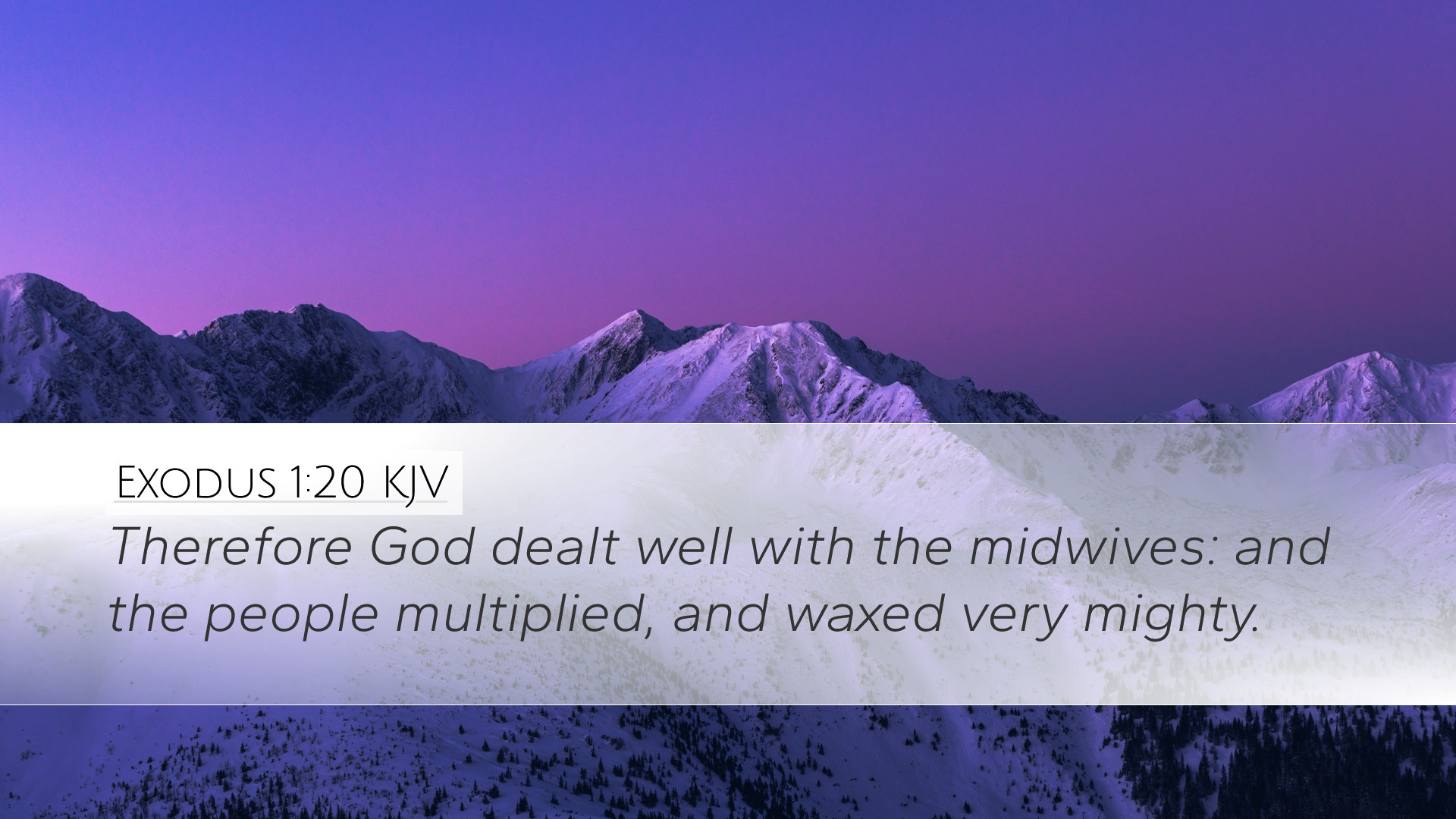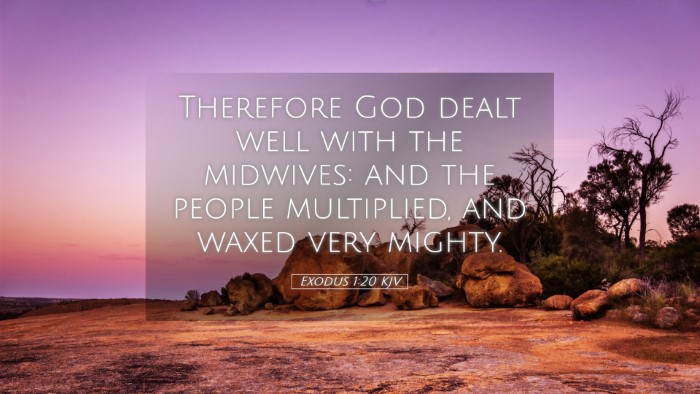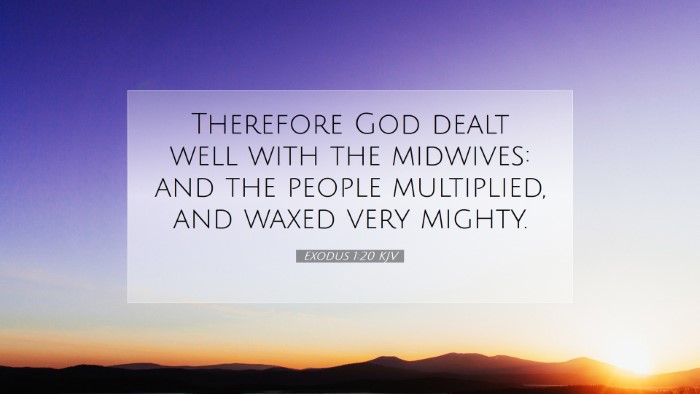Commentary on Exodus 1:20
Exodus 1:20 states: "Therefore God dealt well with the midwives: and the people multiplied, and waxed very mighty." This verse highlights the divine approval bestowed upon the midwives due to their actions amidst the oppressive decree of Pharaoh. In this commentary, we will explore various insights from esteemed public domain commentators, namely Matthew Henry, Albert Barnes, and Adam Clarke.
Contextual Background
The Book of Exodus opens with the Israelites enslaved in Egypt. King Pharaoh, fearing their growing population, orders the midwives to kill all newborn Hebrew boys. However, the midwives, Shiphrah and Puah, defy this command, valuing the sanctity of life. Their bravery and faithfulness set the stage for God’s intervention and blessing.
Insights from Matthew Henry
Matthew Henry emphasizes the moral courage displayed by the midwives. He notes that their fear of God outweighed their fear of Pharaoh, illustrating a powerful principle of faith in action.
- Divine Favor: Henry asserts that the midwives’ allegiance to God protected them. God's favor was evident in their success in saving countless infants, which serves as a profound reminder that faithfulness in the face of tyranny is rewarded.
- Multiplication of the People: The midwives' actions directly contributed to the multiplication of the Israelites, demonstrating that God honors those who stand for righteousness, even in dire circumstances.
Insights from Albert Barnes
Albert Barnes provides a detailed examination of the text, focusing on the relationship between the midwives' actions and God's response.
- God's Dealings: Barnes notes that "God dealt well" with the midwives signifies both temporal blessings and spiritual rewards. Their integrity led to an increase in their own households and a flourishing community of believers.
- Meaning of 'Dealt Well': He explains that the phrase implies God’s providential care, suggesting that those who honor God's commandments will not only face the challenges posed by earthly rulers but will also experience God’s protection and sustenance.
Insights from Adam Clarke
Adam Clarke examines the societal implications of the midwives' rebellion and the subsequent divine blessing.
- Resistance to Oppression: Clarke highlights that the midwives’ direct action against Pharaoh’s edict showcases a model of civil disobedience grounded in moral integrity. They acted against an unjust law, affirming the biblical principle that one must obey God rather than men.
- Symbol of Hope: Clarke suggests that the multiplication of the people signifies hope and resilience. The phrase "waxed very mighty" conveys not only physical strength but also spiritual and national identity among the Israelites, setting a precedent for future deliverance.
Theological Implications
This verse conveys several significant theological themes that are relevant to pastors, students, and theologians:
- The Sanctity of Life: The midwives' actions remind believers of the sacredness of life, aligning with the biblical principle that human life is created in the image of God.
- Faithfulness in Persecution: The narrative encourages readers to remain steadfast in faith despite external pressures and threats, assuring them of God's providential care.
- God's Sovereignty: The outcome of the midwives’ bravery demonstrates God’s sovereignty in human affairs, showing that His purposes will prevail even when they seem inconceivable.
Conclusion
Exodus 1:20 serves as a poignant reminder of God’s commitment to justice and righteousness. The stories of Shiphrah and Puah exemplify faith under fire and challenge believers to live boldly for God's truth. Their legacy teaches that faithful obedience brings divine blessings and that God is intricately involved in the lives of those who honor Him above all else.


